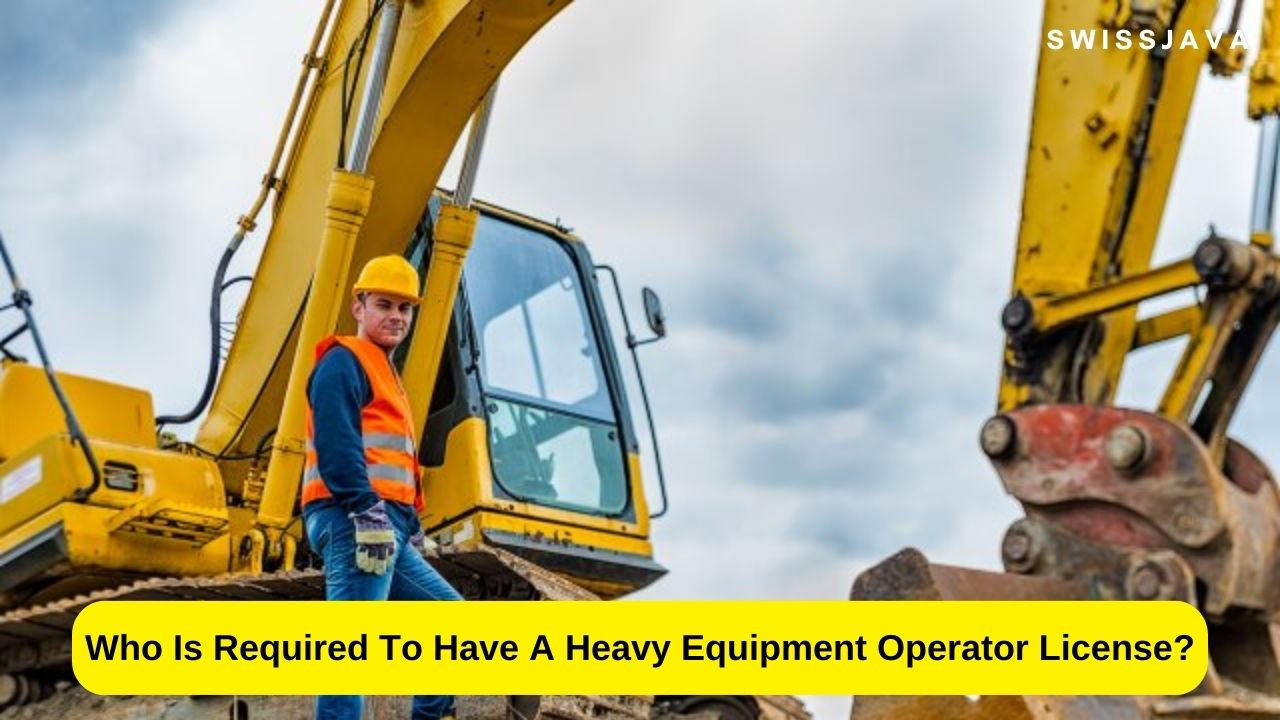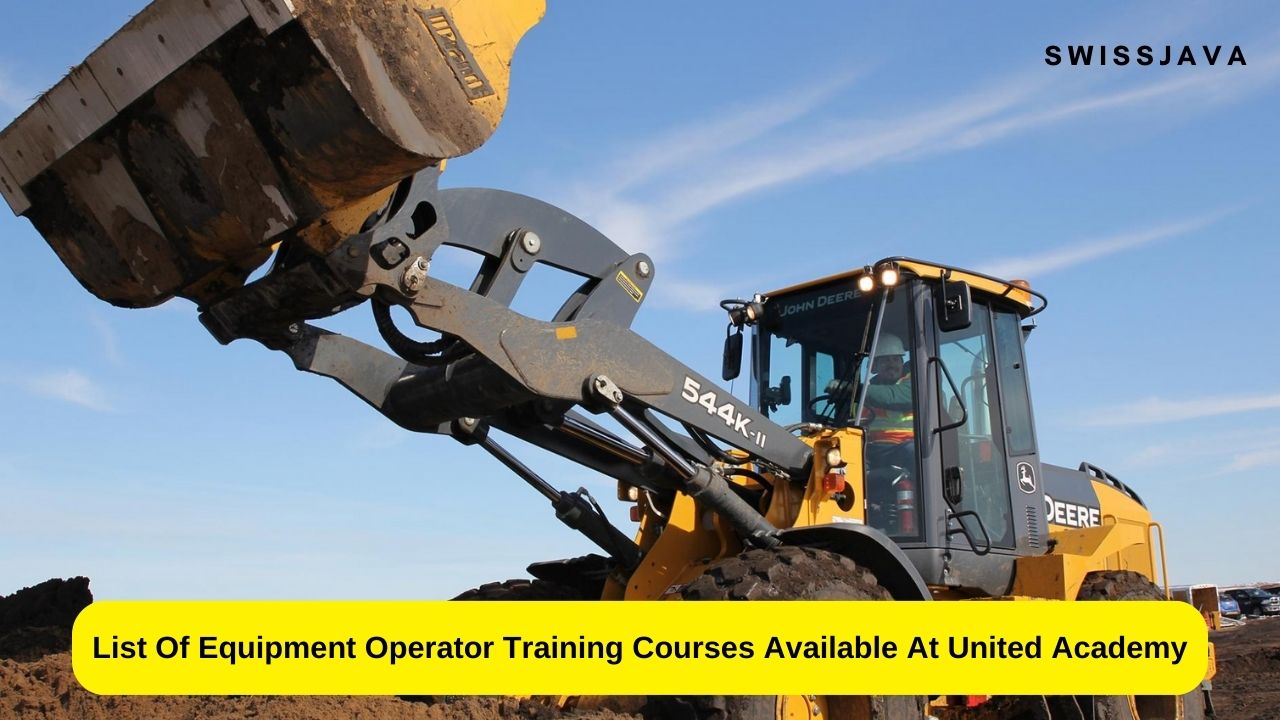Heavy Equipment Operator Certification – Heavy equipment operator certification is a credential that indicates a person’s proficiency in operating heavy equipment such as bulldozers, excavators, cranes, loaders, and other construction and industrial machinery.
This certification is typically earned through a training program or certification course that covers the safe operation and maintenance of various types of heavy equipment.
The certification process generally involves a combination of classroom instruction, hands-on training, and practical assessments.
Certification requirements may vary depending on the specific equipment being operated, the industry, and the region or country where the certification is being pursued.
In some cases, certification may be required by law or by an employer in order to operate certain types of heavy equipment.
Heavy Equipment Operator Certification
If you’re thinking about becoming a heavy equipment operator, you’re undoubtedly wondering what kind of heavy equipment operator certification or heavy equipment operator license you’ll need and how to obtain it.
The answer to the first question is dependent on the sort of equipment you wish to run and, in some situations, where you live. Continue reading to learn more.
Who Is Required To Have A Heavy Equipment Operator License?

The requirements for a heavy equipment operator license or certification vary depending on the country, state, or province and the specific job or industry in question.
In some cases, a heavy equipment operator license may be required by law, while in other cases, it may be required by employers or industry associations to ensure safe and efficient operation of equipment.
In general, heavy equipment operators who work on construction sites or in industrial settings are more likely to be required to have a license or certification.
This is because these environments often involve high-risk activities, and operators must demonstrate their ability to operate equipment safely and effectively to prevent accidents and injuries.
It’s important to check with the relevant regulatory agency or employer to determine whether a heavy equipment operator license or certification is required for a particular job or industry.
Is It Legal To Drive Heavy Machinery Without A License?
In most countries and jurisdictions, it is not legal to operate heavy machinery without a license or certification
Operating heavy machinery can be dangerous and requires specialized skills and knowledge to do so safely and effectively.
In order to ensure the safety of workers and the public, many countries have regulations that require operators of heavy machinery to hold a valid license or certification.
Penalties for operating heavy machinery without a license can vary depending on the jurisdiction, but they can include fines, loss of employment, and even criminal charges in some cases.
It’s important to check with the relevant regulatory agency or employer to determine the specific requirements for operating heavy machinery in your area, and to obtain the necessary training and certification before operating any heavy equipment.
License Requirements For Heavy Machinery Operators
The license requirements for heavy machinery operators can vary depending on the country, state or province, and the specific type of equipment being operated.
In general, however, heavy machinery operators are required to have completed a training program and obtained a certification or license demonstrating their knowledge and competence in the safe operation of heavy machinery.
The specific license requirements can vary based on the industry and the type of equipment being operated.
For example, in some jurisdictions, a Commercial Driver’s License (CDL) is required to operate certain types of heavy machinery such as dump trucks or tractor-trailers.
In other cases, a Heavy Equipment Operator (HEO) certification may be required to operate specific types of construction machinery such as excavators, backhoes, and bulldozers.
In order to obtain a license or certification as a heavy machinery operator, candidates typically need to complete a training program that covers the safe operation and maintenance of the equipment, as well as any relevant regulations or laws.
The certification process typically includes a written exam, a practical exam, and/or an on-the-job evaluation.
It’s important to check with the relevant regulatory agency or employer to determine the specific license requirements for operating heavy machinery in your area.
How to Obtain a Heavy Equipment Operator Certification or License
To obtain a heavy equipment operator certification or license, there are several steps you can take:
1. Identify the Requirements
The first step is to identify the specific requirements for heavy equipment operator certification or licensing in your country, state, or province.
This may include the types of equipment you can operate and the training, education, and experience requirements needed to obtain a license.
2. Complete A Training Program
Many organizations and institutions offer heavy equipment operator training programs that cover the fundamentals of equipment operation, safety, and maintenance.
These programs may be offered in-person, online, or through a combination of both.
3. Gain Practical Experience
To become proficient in heavy equipment operation, it is essential to gain hands-on experience.
This may involve working as an apprentice or assistant to an experienced heavy equipment operator, or completing on-the-job training programs offered by employers or training institutions.
4. Pass The Certification Exam
Once you have completed the necessary training and gained practical experience, you will need to pass a certification exam.
The exam typically includes a written test and a practical evaluation of your equipment operation skills.
5. Obtain The License
Once you have passed the certification exam, you will receive your heavy equipment operator license or certification.
It is important to keep your license or certification up to date by completing any required continuing education or training programs.
Read More: 4 Popular Heavy Equipment Dealers in 2023
List Of Equipment Operator Training Courses Available At United Academy

United Academy offers a range of equipment operator training courses to help individuals and organizations develop the skills and knowledge needed to operate heavy machinery safely and effectively.
Some of the equipment operator training courses available at United Academy include:
- Mobile Crane Operator Training: This course covers the safe operation of mobile cranes, including the inspection, setup, and operation of the crane.
- Tower Crane Operator Training: This course provides comprehensive training on the safe operation of tower cranes, including the inspection, setup, and operation of the crane.
- Boom Lift Operator Training: This course covers the safe operation of boom lifts, including the inspection, setup, and operation of the lift.
- Forklift Operator Training: This course provides training on the safe operation of forklifts, including the inspection, setup, and operation of the forklift.
- Heavy Equipment Operator Training: This course covers the safe operation of various types of heavy equipment, including bulldozers, excavators, and loaders.
- Aerial Lift Operator Training: This course covers the safe operation of aerial lifts, including the inspection, setup, and operation of the lift.
- Rigging and Signal Person Training: This course covers the safe use of rigging equipment and provides training on the proper hand signals for crane operators.
Conclusion
In conclusion, heavy equipment operator certification is a process that helps to ensure the safety and competency of individuals who operate heavy machinery.
To obtain a certification, individuals typically need to complete a training program, gain practical experience, and pass a certification exam.
The specific requirements for certification can vary depending on the country, state or province, and the type of equipment being operated.
However, completing a certification program can provide individuals with the skills and knowledge needed to operate heavy machinery safely and effectively, while also meeting regulatory requirements.